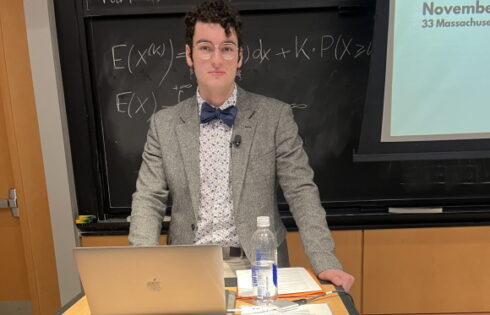
The fall term just started and student newspapers across the country are already reeling from actions that threaten their ability to publish controversial and unpopular speech.
We’ve covered several here, particularly the kerfuffle that Wesleyan University’s Bryan Stascavage provoked when he wrote a (mildly) critical column about the Black Lives Matter movement.
Hundreds of Argus copies were stolen, its staffers (including Iraq war veteran Stascavage) intimidated by activists, and its funding source potentially threatened by the student government.
The Foundation for Individual Rights in Education offers this rundown of the year so far:
Brown University’s Daily Herald apologized for two op-eds (and deleted one) because they “hurt” some black and Asian-American students
Hundreds of copies of the University of Alabama’s Crimson White were stolen, likely because of an editorial cartoon criticizing hazing
Louisiana State’s law school is considering enforcing “standards” against The Civilian that would include “extensive prior content review, prior restraint, and editorial control by multiple layers of administrators.”
It’s even sadder when student newspapers internalize the message that they shouldn’t question prevailing orthodoxies because it might hurt people’s feelings.
Bipolar from start to finish
When The War on Men author Suzanne Venker was uninvited from a lecture series at Williams College called “Uncomfortable Learning” (“Irony alert,” my colleague Jenn Kabbany quipped), The Williams Record responded with … well … it’s not quite clear what.
Its editorial board called Venker’s views on feminism (that it “fails” women) “wrong, offensive and unacceptable,” but couldn’t quite say outright that the school was correct in silencing her for offending the precious snowflakes of Williams:
[I]t is difficult to determine whether or not there would have been enough educational value in her lecture to justify an appearance, given that her presence on campus would have hurt students who face sexist and homophobic stereotypes. …
In general, the College should not allow speech that challenges fundamental human rights and devalues people based on identity markers, like being a woman. … While free speech is important and there are problems with deeming speech unacceptable, students must not be unduly exposed to harmful stereotypes in order to live and learn here without suffering emotional injury. It is possible that some speech is too harmful to invite to campus. The College should be a safe space for students, a place where people respect others’ identities. Venker’s appearance would have been an invasion of that space.
In the next paragraph the editorial board reveals that it’s bipolar (sorry, is that a microaggression?), recognizing that Venker’s perspective is valuable because it’s highly unlikely that students would hear that perspective in their “purple bubble” at Williams.
While incredibly patronizing to people whose views are almost certainly more informed than theirs, the Record editors go on argue that they can enlighten people who aren’t as learned and progressive as them (note the equation of “educated” and “liberal-minded”):
Engaging with people who have damaging views and gradually educating them about privilege and discrimination is necessary to bring about societal change. … It is difficult for an educated person who associates mostly with other liberal-minded people to understand how Venker justifies her beliefs or how she came to hold them. The potential value in her lecture was the opportunity for students to hear her explain herself and the chance for community members to ask her questions. … Those reasons and justifications are the root of her wrongful opinions, so learning what they are is essential to removing those opinions from society.
How noble of the Record editors to lead their “liberal-minded” peers on a crusade to rid the world of “wrongful opinions”!
No views allowed that threaten the ‘safe space’
And then the editorial’s bipolar side comes back out (it’s like watching off-her-meds Carrie Mathison on Homeland):
That being said, there are reasons to believe that the lecture would not have enough educational value to justify inviting Venker to campus. Her beliefs are not nuanced. … Trying to persuade Venker might have been a hopeless endeavor and is not necessarily the most productive use of Uncomfortable Learning’s resources, especially in light of the strong reaction from students against her appearance. …
It is important that Uncomfortable Learning pushes the envelope of campus discourse, but they must consider the potential damage of introducing harmful thoughts into the safe space that is so vital to the College’s ability to nurture and educate.
“Harmful thoughts”? “Safe space”? When did college students turn into Chinese censors?
The Record, at the least, had the decency to leave the comments open on this poorly argued op-ed, so that a real exchange of ideas could happen.
Marquette University’s John McAdams, himself the victim of an administration that defends the silencing of students, gets into an argument with commenters who compare allowing Venker to speak with teaching romance novelist Danielle Steel and teaching the “biblical age” of the earth. It’s an interesting read (and raises the question “why not allow guest speakers to present those views?”).
Not that it’s likely to happen again. Williams will probably limit its “Uncomfortable Learning” series going forward to speakers with whom students are much more comfortable.
And judging by their patronizing, holier-than-thou attitude, the Record editors aren’t likely to let anyone who intelligently questions the fruits of feminism grace their own pages.
It’s a safe space, after all.
RELATED: Chinese authorities refuse to allow Magna Carta exhibit at Beijing university
Like The College Fix on Facebook / Follow us on Twitter
IMAGE: Homeland screenshot
Like The College Fix on Facebook / Follow us on Twitter







Please join the conversation about our stories on Facebook, Twitter, Instagram, Reddit, MeWe, Rumble, Gab, Minds and Gettr.